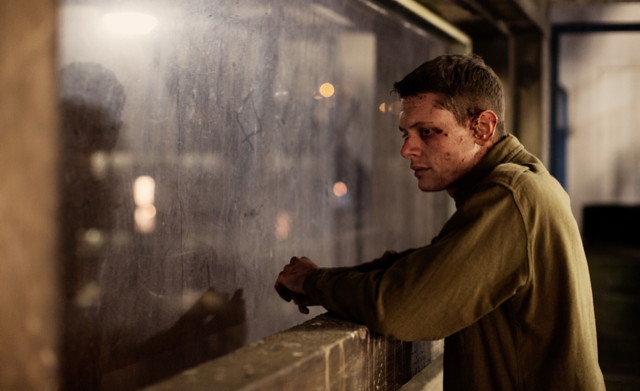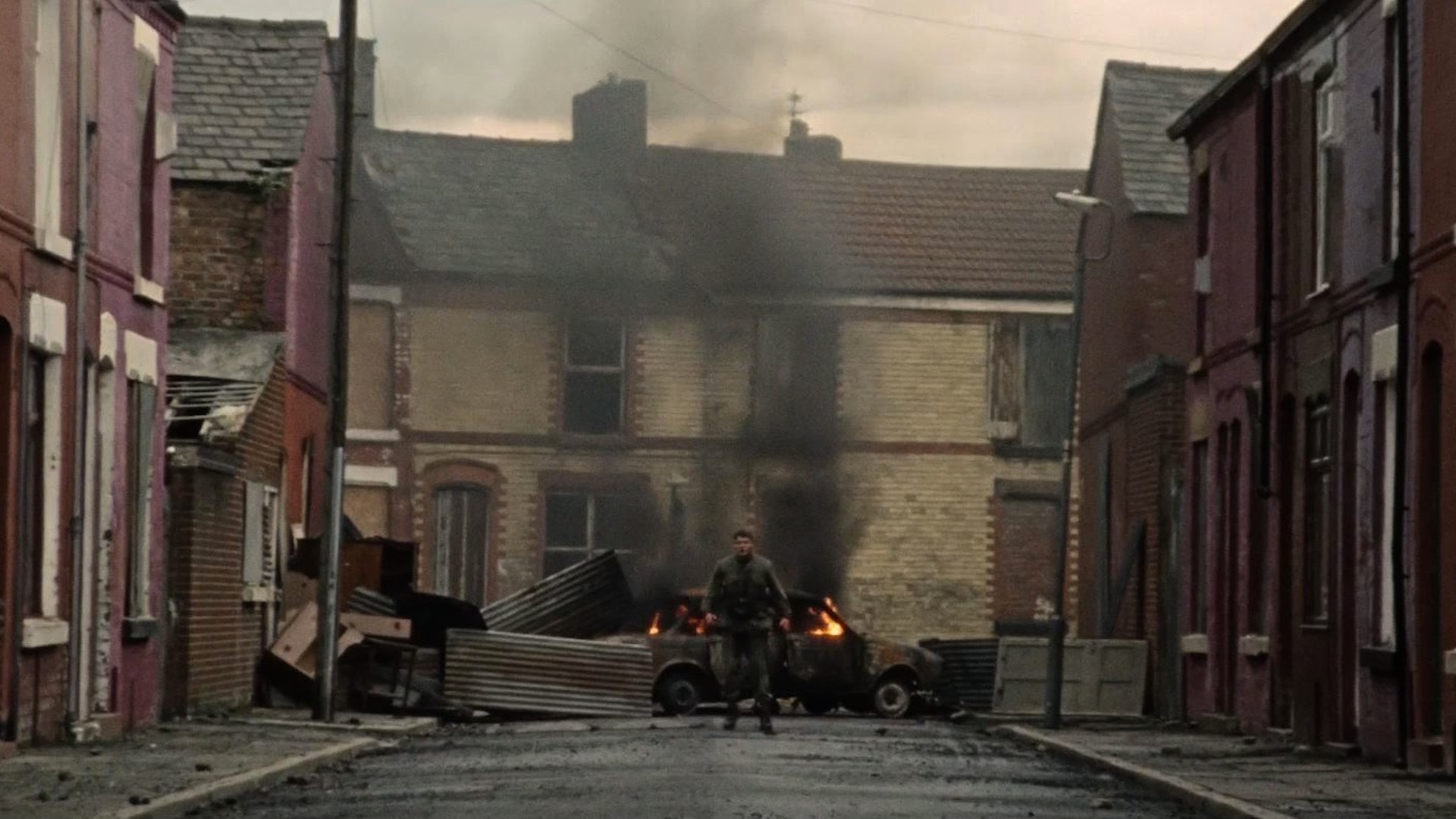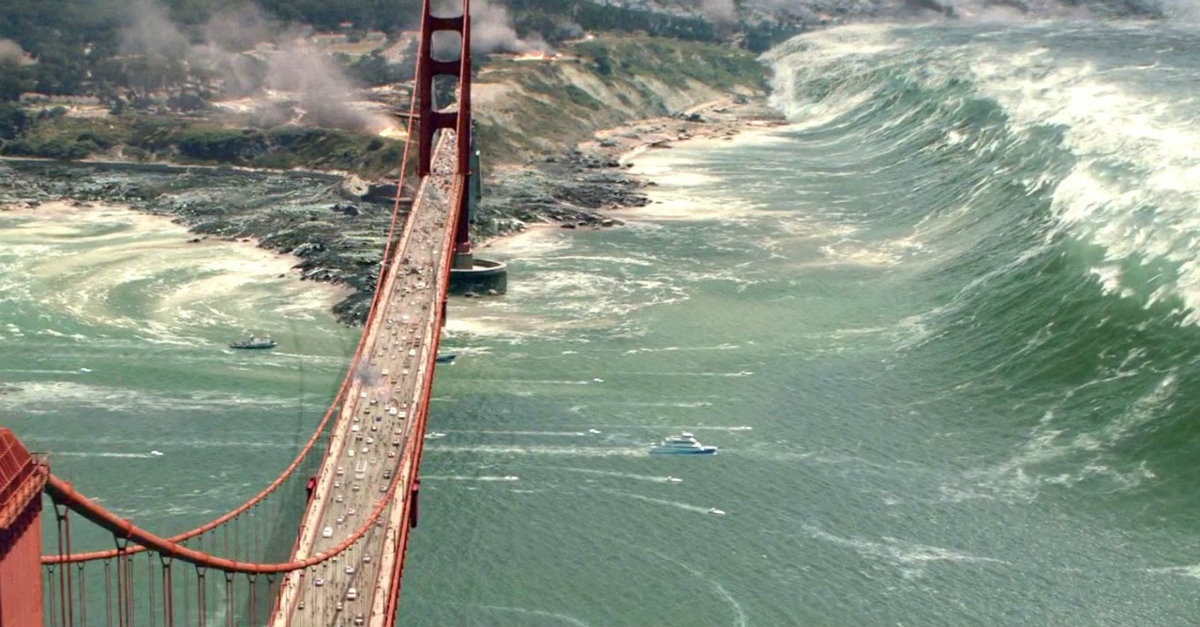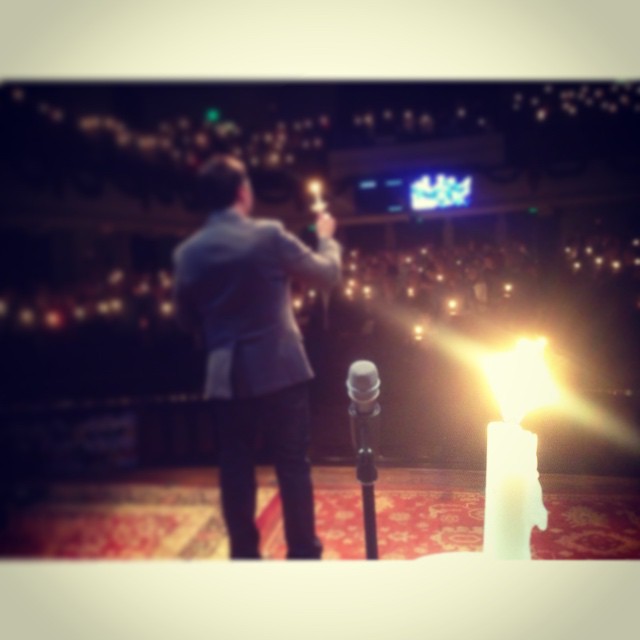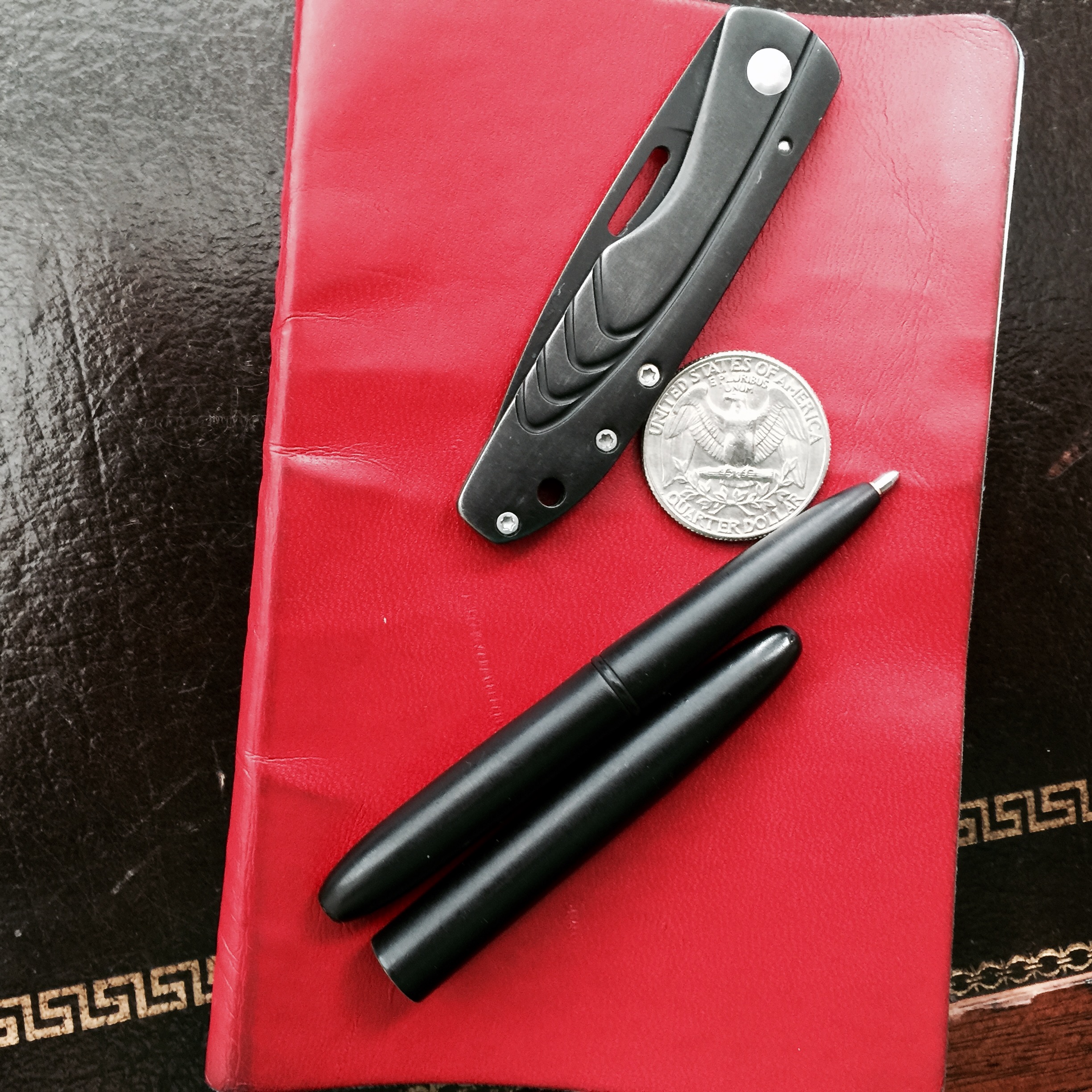"The Impossible"
I recently re-watched the 2012 movie The Impossible, the true story of one family’s experience with the 2004 Indian Ocean tsunami. It stars Naomi Watts (who was nominated for the Best Actress Academy Award), Ewan Macgregor, and a young Tom Holland.
It’s even better than I remember it and very moving. Highly recommended.
The reason I’m writing about The Impossible now is because I’m going to talk in my Easter Sunday sermon about the real-life experience on which the movie is based and I’d love for folks to watch the movie before coming to church Sunday. It’s currently streaming for free on Amazon Prime, and is of course also available through other streaming services as well.
Let me know if you get a chance to see it before Sunday.
Here’s an extended clip of the wave hitting the Thai resort where the family is spending the Christmas holidays. Warning: not for the faint of heart.
Oscar Grace
A moment of grace can change everything.
I remember watching the Academy Awards in 2004. Bill Murray—one of my favorite actors—had been nominated for the Best Actor Oscar that year for his movie Lost in Translation.
At the Oscars, the camera lingers on the faces of each of the losing nominees after the winner has been announced. (We like to see the pain and disappointment of others, I suppose.) I remember Bill Murray looking particularly crushed when Sean Penn was announced as the winner. He had to have known that he’d never get back there again, particularly as he has made a career as a comic actor and not as someone who takes on the sorts of dramatic roles that are like catnip to the Academy.
I was reminded of that moment when I saw the award given for Best Director at last night’s 2020 Academy Awards. The Korean director Bong Joon-Ho was announced as the winner, and then the camera lingered on the faces of the four losing directors: Martin Scorsese, Quentin Tarentino, Sam Mendes, and Todd Phillips. (I thought Mr. Phillips looked particularly disappointed.) Seeing the real-time disappointment of men who have been working their entire lives to win something made me uncomfortable; I felt sorry for them.
And then Bong Joon-Ho made his speech, and the entire feel of the moment changed. The whole thing is worth watching.
Mr. Bong first deftly recognizes Martin Scorsese in such a pure and heartfelt way that the entire audience gives Martin Scorsese a standing ovation. Then, he credits Quentin Tarentino with generously promoting his films in American when no one had heard of him, and then he tells Todd Phillips and Sam Mendes that he wishes he could cut the Oscar statuette in pieces and share it with them. Todd Phillips grins. It’s as if grace has been poured out on the entire theater, with everyone just grateful to be there and experience it.
It’s such a beautiful moment.
Grace changes everything.
Ad Astra
I rarely find myself in agreement with the message of a Hollywood movie, but I’m all in on this one.
I played hooky today and saw the new movie Ad Astra in an empty, midday theater, which was appropriate, because it is a lonely, expansive film, which asks the perennial human question: What are you looking for? We are all looking for something, and usually that something is something out of reach, far away, ad astra.
The movie is set in “the near future” when humanity has developed the technology for deep space travel. (Not all the physics holds up to even my pedestrian knowledge, but it looks entirely believable all the way through.) Major Roy McBride (played by Brad Pitt) is sent on a top secret mission to find his father, lost near Neptune decades before. Since being left by his father as a boy, Roy has always been looking for something, and his search takes him literally to the stars.
So many of us live lives of quiet dissatisfaction, always looking for the next thing, all the while encouraged in our restlessness by multinational corporations who have learned how to monetize our searching.
If you had this car
If you had this woman
If you had this body
If you had this house
Then you would be satisfied.
But, it’s not true, is it? And so we keep looking ad astra and never think there might be something to the advice of Jesus to “consider the lilies.”
It is a beautiful prayer: “God, thou hast put salt on our lips that we might thirst for thee.” Our searching is, of course, ultimately a search for God. But there is a second order of restlessness that also keeps us from delighting in the simple gifts of God: the people at hand, the water we drink, the daily bread God provides. If we can’t take delight and satisfaction in these things, then no matter where we go, there we’ll be.
Like you, I’ve read the stories about Brad Pitt’s family chaos over the past few years: how he left his first wife, the movie star Jennifer Aniston, for the movie star Angelina Jolie, how they had a total of 6 adopted and natural children together, how his marriage fell apart, how he was charged with and then cleared of child abuse. I wonder, has all of that chaos caused him to reflect on what really matters? He plays his role with a wisdom that suggests he’s learned a lot of this the hard way, and is warning us of the danger of thinking that contentment lies ad astra, elsewhere, and not where we already are.
What does it profit a man to gain the whole world and lose his own soul?
What good is it to go to the stars if you haven’t learned to delight in the gifts of God already at hand?
Ad Astra (2019): recommended.
"Annihilation"--Book Review
I finished the Jeff VanderMeer science-fiction/horror novel Annihilation last month; the movie opens this week. [No spoilers below, by the way.] I?d seen the trailer for the movie online and was intrigued by the BASED ON THE ACCLAIMED BEST-SELLING NOVEL? title that flashes across the screen, so I put the novel on hold at the library. (I?d not heard of it previously.) My verdict, now that I‘ve read it? If the movie Annihilation?is anything like the novel?Annihilation,?it will be STRANGE.The novel begins in medias res as a team of four women?each unidentified, except for her title: psychologist, anthropologist, surveyor, and our narrator the team biologist?begin to explore a wild coastal wilderness known as Area X. Area X is beyond a mysterious border that requires the women to have been hypnotized to pass through it; the team‘s mission is to research the area and report back to some mysterious agency called The Southern Reach. Almost immediately, the team stumbles across a mysterious underground tower,? the top of which begins at the earth‘s surface. The entrance leads to a spiral staircase that continues underground. The team explores the tower, and below ground, in the dark, they discover a long stream of words running along the wall. The string begins
Where lies the strangling fruit that came from the hand of the sinner I shall bring forth the seeds of the dead to share with the worms that?.etc.
The biologist comes close to the words and discovers that they are in fact a living organism or organisms, perhaps some type of fungus. They return to the surface, and strange things begin to happen.Or, at least, strange things are implied and occasionally shown. The strangeness of the novel slowly increases the more you read, because the characters in the midst of the strangeness don't seem to be overly bothered by it, which I take is the effect the author was going for: the very fact that everyone in Area X takes its increasing weirdness in stride is a clue to us that the entire situation is uncanny. We wonder, What‘s wrong with these women? Why is our narrator so matter-of-fact in describing a situation that is so utterly bizarre?The novel in fact is so bizarre that I finished it and had to ask myself, What was this about?Now, you should know that almost none of the scenes in the movie trailer is actually in the novel, but if you're planning on seeing it, expect it to be?weird. And let me know if you figure it out.
My Thoughts on "Spotlight"
I?went to see the?movie Spotlight?on Friday?afternoon. Here are some quick thoughts.Every now and then I'll go to the movies by myself on Fridays. I tend to do a lot of my sermon preparation on Fridays, and from time to time I'll go to a movie for sermon research. (I'm not kidding.) I'm preaching on Judas this Sunday, and it struck me that the movie?Spotlight might give me some insight into the idea of betrayal.Spotlight, which won the Academy Award for Best Picture on Sunday, is about the investigative reporting the Boston Globe did in 2001 that blew the clergy sex abuse scandal wide open. It is a serious, earnest movie that thankfully avoids the self-importance and self-regard?in which these sorts of "Important" Hollywood films sometimes?indulge.At one point in the film, one of the reporters, for whom reporting on the story has been an emotional ordeal, shouts: "They?knew?and they let it happen...to kids." That line really struck me, and I just started crying quietly, in the dark.How could you betray that trust?But that's the way it always is, isn't it? Spotlight does a good job of showing how the real scandal was not that hundreds of priests preyed on the vulnerable, but that thousands of people let it happen, covered it up. As one of the characters says, "It takes a village to molest a child."The movie very clearly takes on the Roman Catholic Church, but I don't think Spotlight?is either anti-Christian or anti-clerical.? There was never a point while watching the movie that made me say, "I don't think you are being fair." Rather,?I found the film‘to be a spotlight on the inevitable tendency of the strong to hurt the weak, and the invariable human tendency to knuckle-under, close ranks, and deny ever seeing anything.I can't compare Spotlight to any of the other Best Picture nominees since I haven't seen any of them, but it is exactly the sort of movie that is worthy of that designation: tautly constructed, about an important topic, and a moving story.Recommended.
Best of 2015
The editors at www.andrewforrest.org (best blog on the internet?)?have been working long hours and our fingers to the bone to get our 1st annual best-of list together. Yes, we didn't make it by 12/31, but it's not too late to look back at 2015, right?
Best Book I Read in 2015
The Amazon description calls Kristin?Lavransdatter?"the turbulent historical masterpiece of Norway's literary master." I agree that it's a masterpiece (though certainly an overlooked one): Sigrid Undset's 1100 page historical novel is a book that will stay with me for years to come. It's about the life of the title character in 14th century medieval Norway, and I can honestly say I've never read anything like it. Highly recommended.
Best Movie(s) I Saw in 2015
Here's what?I wrote in April about the brutal war thriller?'71:
Walking down the stairs of the theater afterwards, I realized that I?d been keeping my entire body rigid and tense throughout the movie?it‘s that kind of film. It‘s really well done: terrifying, honest, brutal, and resists the urge to clean-up everything at it‘s end. Highly recommended, though not for the faint of heart."
Thinking back on it 9 months later, I stand by that assessment. '71 is one of the best movies of the year.
Meanwhile, on the complete other end of the movie spectrum....
On the complete other end of the spectrum, the British claymation film?Shaun the Sheep: the Movie?is also one of my favorite movies of the year. It's wordless, really funny, and touching and sweet as well. Recommended.
Best Reason Not to Visit Seattle
Kathryn Shultz wrote a long article in?The New Yorker's July 20 issue called "The Really Big One,"?about how the Pacific Northwest is overdue for a massive earthquake. One of the memorable quotations from the piece comes from the region's FEMA director when he says (and subsequently stands by his remarks): "Our operating assumption is that everything west of Interstate 5 will be toast. Her follow-up piece 8 days later addressing some FAQ's won't make you feel any better.
I'll stay in Texas, thank you.
Best App
My wife and I made a decision to never share pictures of our son on social media. However, our extended family is far-flung and lives on 3 different continents, and sharing pictures is an important way to feel closer. Enter?Togethera, a photo sharing app that allows you to create closed groups. We've been using it since the summer and love it.
Best Sermon
That's like asking me to choose which one of my kids is the best. The answer is obvious: I like them all, except the ugly ones.
Best Everyday Carry Accessories
I never leave the house without the following in my pants pockets:
- a pocket notebook (which I keep in my back pocket);
- my space pen;
- and my trusty ole?pocketknife.
Best State Fair
 Too easy:?The State Fair of Texas, fool! (September 30 will be here before you know it....)
Too easy:?The State Fair of Texas, fool! (September 30 will be here before you know it....)
Finally: Best Hanukkah Song
I know, I know: with so many to choose from, how do you narrow it down to just one? But, this year's winner (which, being held hostage by our house's resident kindergartner, we played on repeat in our household 1,000 times in the month of December) is Jewish reggae?rapper Matisyahu's 2012 single "Happy Hanukkah." The video ain't my favorite, but I defy you not to be happy with the audio turned way up.[embed]https://www.youtube.com/watch?v=K1QRSl6hUZw[/embed]My favorite part is the "Lion of Juuuuudah" part of the refrain.
Auld Lang Syne
2015 was a great year; here's to an ever better 2016.
(To ensure you have a great 2016, click?here‘to subscribe to my blog updates, delivered right to your inbox 3 days a week.)
My A/V Media Diet
What do you watch and listen to on a regular basis? We are what we eat, and that goes for the information we consume. Today's post (part 2 of a 3 part series) is about the sources that make up my Audio/Visual media diet.
Audio Subscriptions
I have been a devoted listener and subscriber to?The Mars Hill Audio Journal?since 2003. Ken Myers, from Charlottesville, VA, has created an audio journal that is exactly opposite everything our popular culture embraces: his interviews are long, unconcerned with the latest and loudest, and deeply concerned with the deep questions that humans have been asking for millennia.The name of the?Journal comes from Acts 17, where the Apostle Paul goes to Mars Hill in Athens and interacts with the pagan philosophers on their own terms.
Podcasts
- The Eric?Metaxas Show,?which features Eric Metaxas and his wide variety of guests;
- Andy Stanley Leadership Podcast;
- Munger?Place Audio Podcast: though it's painful for me to listen to my own sermons, I still do so from time to time because I know that hearing myself helps me become a better preacher;
- Fresh Air:?Half the time I'm either completely uninterested in Terry Gross's interviews or else in complete disagreement with her perspective, and the other half of the time I'm captivated by the long-form interviews featured on Fresh Air;
- In Our Time, a long-running radio show on the BBC hosted by Melvyn Bragg, who interviews British academics to talk in detail about history, science, etc.
- This Is Your Life with Michael Hyatt. I liked the earlier version of this podcast better than the current episodes, but from time to time I still benefit from Michael Hyatt's insights on productivity and leadership.
Television
I don't watch much television these days and we don't have cable. When I do watch TV, it's mainly with my family and mainly on Sundays: NFL football, 60 Minutes, and America's Funniest Videos. As a family, we also watched American Ninja Warrior on Mondays this summer.I've watched every episode of?Arrested?Development multiple times (via Netflix and Hulu), and, until Netflix took it off the air, would also rewatch?Fawlty Towers. (This watching of the same shows over and over again drives my wife crazy.)
Social Media
I reluctantly use Facebook for my job because it helps me stay connected with people in my congregation, and it helps me remember names. On the other hand, I've been an enthusiastic user of Twitter: I like the ways it allows me to follow lots of really interesting people.However, as I wrote about a few weeks ago, in early summer 2015 I deleted both the Facebook and Twitter apps from my iPhone and I haven't looked back. I still use Facebook from time to time, but I've essentially not read anything on Twitter for over 3 months.
Audiobooks
I love audiobooks, and in the last year have been using the Overdrive app from the Dallas Public Library, which allows you to check out audiobooks from your local public library. (I have to be honest, though, and tell you that I miss books on tape. Those were the days.)
Coming in Part 3
The final installment in this series will run next Monday and will be about I subscribe to and read in print: books, magazines, journals, etc. (Click here to read part 1, about my online media diet.) The above was what I listen to and watch on a regular basis.What about you? What sources make up your A/V media diet?
P.S. Subscribe!
If you've read this far, why not subscribe for updates from my blog? I supposedly post 3 times a week on Mondays, Wednesdays, and Fridays (I say supposedly because it's been much less frequently recently). Click here to subscribe.
My Daily Media Diet
What are the books, podcasts, websites, blogs, and newsletters that make up your media diet? You are what you eat, and that includes the information you consume. Today's post is about what I read daily as part of my media diet (part 1 of a 3 part series).
What Is a "Media Diet?"
"Media diet" is a phrase I came across several years ago in a web series by?The Atlantic. A reporter would interview public figures about how they stayed informed and what they regularly read and watched and make a simple post out of it. (I still remember Malcolm Gladwell's comment about his daily reading habits:?"Since my brain really only works in the morning, I try to keep that time free for writing and thinking and don't read any media at all until lunchtime." I totally identify....)In part 1 of this series (parts 2 and 3 coming on the next two Mondays) about my media diet, I'll focus on what I read daily (or at least regularly).
What I Do First Thing in the Morning
I've written before about the importance of the First 15, i,e., spending?at least the first 15 minutes of your day in prayer, scripture, and silence. So, I've been getting up really early recently in order to have an unhurried time of prayer first thing, before I workout.Currently this is what I use in my prayer time:
- the NRSV Thinline Bible I was given by the bishop at my ordination;
- the scripture reading calendar my church gives out through our?Eat This Book program;
- Seedbed's Field Guide to Daily?Prayer (I really like the 30 day- reading plan for the Psalms);
- and a small journal that I write in about once a week or so.
Breakfast:?The Dallas Morning News and NPR
After working out and while eating breakfast and getting ready:
- I get the print version of?The Dallas?Morning News delivered at home, and read it every morning (except Sundays, when I don't get to it until late afternoon, if at all). I have come to really like?The DMN and get more locally-focused and sports news from it than anywhere else.
- I listen to NPR's?Morning Edition radio program most mornings.
Blogs: Rod Dreher (and Not Much Else)
I used to read Andrew Sullivan's blog almost every day. Now that he has stopped blogging, almost the only blogger I read regularly is Rod Dreher. Rod Dreher is a fascinating and unique writer: a convert to Eastern Orthodoxy living in his native rural South Louisiana who writes about culture from a social conservative point of view.One of the topics Rod Dreher writes about that I find most intriguing and persuasive is the so-called "Benedict Option": the idea that Christians in the West today may need to follow the 5th century example of St. Benedict and spend less time participating in politics and the culture wars and more time deliberately cultivating the practices that will "thicken" our faith and deepen our witness. Here is a post from Rod's blog in July that summarizes his thoughts on the Benedict Option.
Websites I Read Almost Daily
- I read?The New Yorker almost every day. I like the short form pieces from folks like John Cassidy and Amy Davidson, but I really prefer The New Yorker for its?long-form essays like this one about Northern Ireland that I wrote about in April.
- I also browse?The Atlantic's website regularly, though I believe that?The Atlantic?is a much worse magazine since it expanded its online footprint. Many of the online articles seem to be merely a slightly (sometimes?very slightly) more serious version of the kind of thing that I suppose you find on Buzzfeed or The Huffington Post, and I do not mean that as a compliment. The Atlantic these days seems to feature quick-reaction pieces on hot-button topics that lack nuance and wisdom. (I'll say more about my complaints with?The Atlantic in part 3 of this series.)
- I browse the?Yahoo! main site and scroll through the headlines, particularly about sports and politics.
- I check out the?BBC Sport's soccer page almost daily.
Online Newsletters and Other Sites
- I read movie reviews on?Plugged In every few weeks or so. I'm interested in movies, but I like reading reviews from a conservative Christian perspective (a perspective you don't get from mainstream reviewers). I rarely have time to see movies in the theater anymore, so I find myself reading many more reviews of movies than actually seeing movies.
- I've recently discovered?Book Notes,?a free newsletter from Byron Borger, owner of Hearts and Minds bookstore in central Pennsylvania. Through Book Notes, I've stumbled across books that I would never have heard of elsewhere--it's a great resources.
- I read articles and watch videos the videos on the CrossFit main site several times a week.
Coming in Parts 2 and 3....
Parts 2 and 3 will be about what I regularly listen to and watch and read in print. The above is what I read online on a regular basis. What about you? What makes up your daily media diet?
P.S. Subscribe!
If you've read this far, why don't you go ahead and subscribe to my blog? I post 3 times a week (Mondays, Wednesdays, Fridays). Click here to subscribe.
A Movie I Won't Soon Forget
I recently saw a movie that will stay with me for a long time. It's about a place where deeply-entrenched poverty has nothing to do with race (at least, nothing to do with race the way Americans understand it), a place infected with a terrorism that has nothing to do with Islam, a place in which the soldiers sent from overseas to occupy and pacify it speak the same language and have the same skin color as the natives. And it's a place of ugly, brutal violence. That place is 1971 Northern Ireland during the Troubles.
"Where the Bodies Are Buried"
I stumbled across an essay in The New Yorker recently that vividly describes the terror and violence and complexities of The Troubles. In many ways, I probably don't fit the profile of a?New Yorker reader: I live in Texas, am a conservative Christian, and come at many issues from a very difference perspective than the secular, elite, bi-coastal consensus that?The New Yorker represents. Yet, I read?The New Yorker regularly, particularly the long form pieces, at which the magazine really excels.![Photos from the essay [newyorker.com]](http://static1.squarespace.com/static/5d70f59aefca59000162e4e6/5d7fcef39f682762992c8aca/5d7fcf039f682762992c8ca1/1568657155292/150316_r26257_rd-896.jpg?format=original) The essay, "Where the Bodies are Buried", is by Patrick Radden Keefe and is a fantastic piece of writing and journalism. It's about the Troubles (the period from the 1960s-1990s when Northern Ireland was a war zone), and about a particular nasty murder in 1972 of a 37 year-old widow and mother of ten children by the I.R.A. in Belfast. It's also about how Northern Ireland has made a fitful transition to peace, and about how Gerry Adams, leader of Sinn Fein, the I.R.A.'s political wing, has tried to cover up his I.R.A. past. It's a disturbing, evocative piece, and I highly recommend it. (Also worth mentioning is another essay on the Troubles called "Belfast Confetti," a New Yorker?essay from 1994 by current editor David Remnick, which is compelling in its own right and particularly?fascinating to read in 2015.)
The essay, "Where the Bodies are Buried", is by Patrick Radden Keefe and is a fantastic piece of writing and journalism. It's about the Troubles (the period from the 1960s-1990s when Northern Ireland was a war zone), and about a particular nasty murder in 1972 of a 37 year-old widow and mother of ten children by the I.R.A. in Belfast. It's also about how Northern Ireland has made a fitful transition to peace, and about how Gerry Adams, leader of Sinn Fein, the I.R.A.'s political wing, has tried to cover up his I.R.A. past. It's a disturbing, evocative piece, and I highly recommend it. (Also worth mentioning is another essay on the Troubles called "Belfast Confetti," a New Yorker?essay from 1994 by current editor David Remnick, which is compelling in its own right and particularly?fascinating to read in 2015.)
The Movie: '71
With?The New Yorker's essay in my mind, a week later I read about a new movie about the Troubles called '71, and a couple of friends and I went to see it. I don't think I'll ever forget it. '71?is about a young British soldier abandoned by his unit in a Catholic neighborhood in Belfast who is pursued through the night by I.R.A. killers. It's also about the fascinating (and terrifying) allegiances of 1970s Belfast, the amoral world of intelligence operatives, and what happens when an occupying force of young men is thrown into a complex political situation that all the foreign firepower in the world won't pacify. Through the long night, the young soldier comes in contact with the various factions of 1970s Belfast: the I.R.A. and its radical off-shoot the Provisional I.R.A., the Protestant loyalist militias, and the ordinary Roman Catholic and Protestants who try to live in the middle of a war.
'71?is about a young British soldier abandoned by his unit in a Catholic neighborhood in Belfast who is pursued through the night by I.R.A. killers. It's also about the fascinating (and terrifying) allegiances of 1970s Belfast, the amoral world of intelligence operatives, and what happens when an occupying force of young men is thrown into a complex political situation that all the foreign firepower in the world won't pacify. Through the long night, the young soldier comes in contact with the various factions of 1970s Belfast: the I.R.A. and its radical off-shoot the Provisional I.R.A., the Protestant loyalist militias, and the ordinary Roman Catholic and Protestants who try to live in the middle of a war. Walking down the stairs of the theater afterwards, I realized that I'd been keeping my entire body rigid and tense throughout the movie--it's that kind of film. It's really well done: terrifying, honest, brutal, and resists the urge to clean-up everything at it's end. Highly recommended, though not for the faint of heart.
Walking down the stairs of the theater afterwards, I realized that I'd been keeping my entire body rigid and tense throughout the movie--it's that kind of film. It's really well done: terrifying, honest, brutal, and resists the urge to clean-up everything at it's end. Highly recommended, though not for the faint of heart.
Vive La France
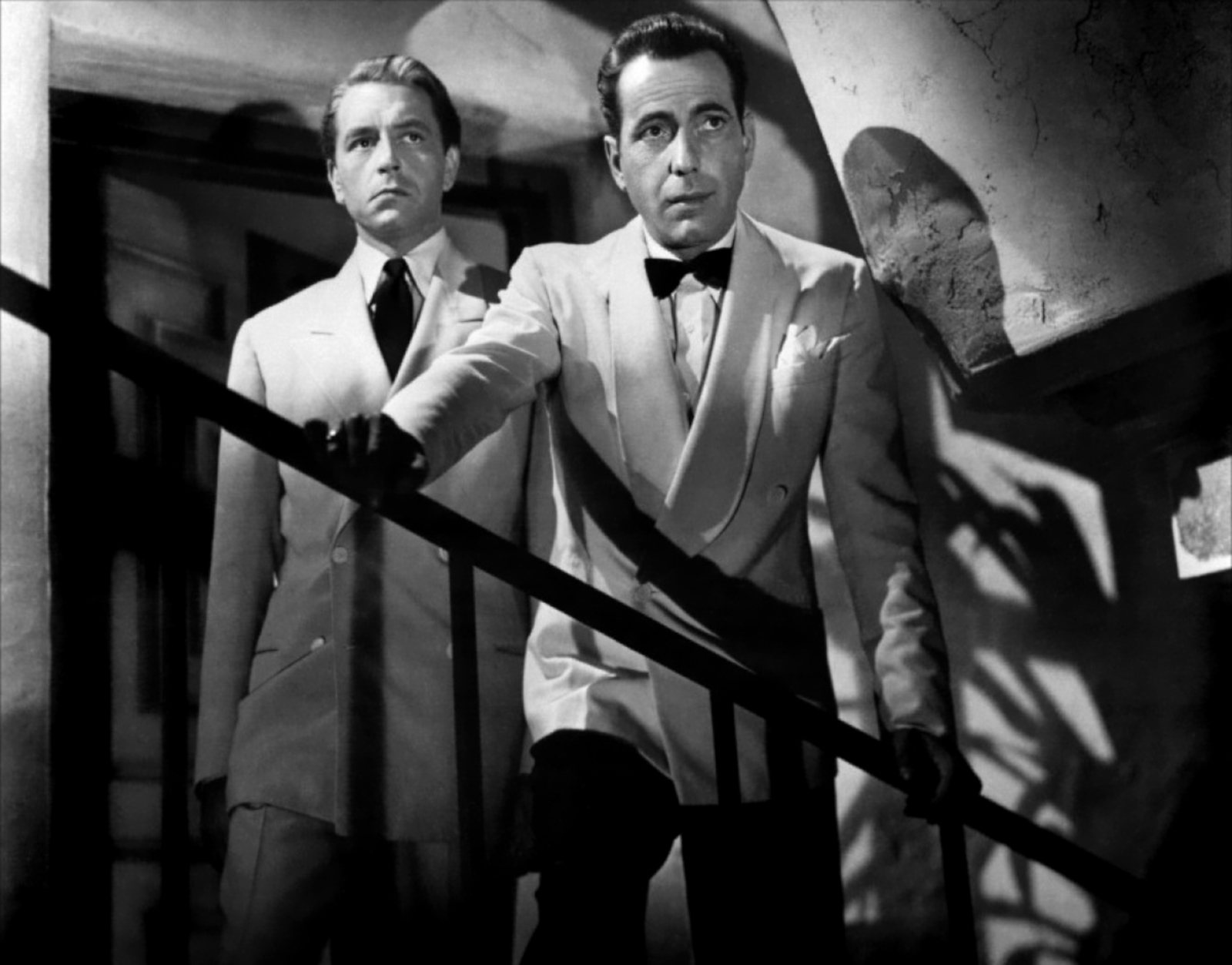 The singing of?La Marseillaise?from?Casablanca,?one of my favorite scenes in all of film, seems especially appropriate today?after?the murders this morning at the?Charlie Hebdo?offices in Paris.[embed]https://www.youtube.com/watch?v=HM-E2H1ChJM[/embed]Some quick thoughts:
The singing of?La Marseillaise?from?Casablanca,?one of my favorite scenes in all of film, seems especially appropriate today?after?the murders this morning at the?Charlie Hebdo?offices in Paris.[embed]https://www.youtube.com/watch?v=HM-E2H1ChJM[/embed]Some quick thoughts:
- Note how virtually everyone goes along with the Nazi song at the beginning, because they are afraid of being different;
- Note Victor Laszlo‘s face of determined courage as he stands on the balcony with Rick and hears the Nazi song;
- Note how Elsa looks at Victor as he walks purposefully to the orchestra (she knows what he‘s capable of);
- Note how it takes one man‘s courage to put courage in others;
- Note how Elsa looks at Victor once the singing catches on;
- Note how the Nazis prepare to use violence once they can‘t bully and propagandize their opponents into silence. (The clip ends at the point at which the Nazis force the closing of Rick‘s Cafe.)
I want to be a man like Victor Laszlo; I?d like to earn the right for my wife to look at me the way Elsa looks at him. Vive La France. Vive La Libert?. (Credit to?Rod Dreher?for reminding me today about that scene from?Casablanca.)
"The Kind of Woman You Should Marry"
It's one of those things my dad said that I'll never forget: "That, boys, is the kind of woman you should marry."
My Dad's Life Lesson About Marriage
My dad isn't the kind of guy who sits his sons down and says, "I'm going to share with you a life lesson, so be sure to pay attention." But, from time to time over the years, he would say something about life in an offhand way,and because it didn't happen very often and never seemed forced or planned, I'd remember what he said. This is what he had to say about marriage.
The Run on the Savings and Loan
We were watching?It's a Wonderful Life;?I was probably in my early twenties and home for Christmas. In the movie, George Bailey wants to travel and see the world, and he and his new bride Mary have scraped and saved to make it possible. It's their wedding day, and George and Mary are about to leave Bedford Falls for their honeymoon when George gets word that there has been a run on the bank his family?owns, Bailey Bros.Building and Loan. (It's during the Great Depression.) Banks are?closing right and left, but if the Savings and Loan closes it will be a social disaster, because Bailey Bros. Building?and Loan is the only bank in town not run by greedy Mr. Potter. Mr. Potter wants to keep the poor and the immigrants in debt; Bailey Building?and Loan offers the poor and the immigrant a way out of poverty and into home ownership. If the old Building?and Loan goes under, Bedford Falls will be a worse place to live
Here's the Scene
Watch the whole 6:44 clip--it's worth it.[embed]https://www.youtube.com/watch?v=lbwjS9iJ2Sw[/embed]
"That's the Kind of Woman You Should Marry"
Mary Bailey spontaneously offers their honeymoon funds for the purposes of keeping the Savings and Loan open. She displays a beautiful, simple, great-hearted generosity.After that scene, my dad said to us, in an off-hand way, "Boys, that's the kind of woman you should marry."And I did.
My One Major Problem With the "Noah" Movie
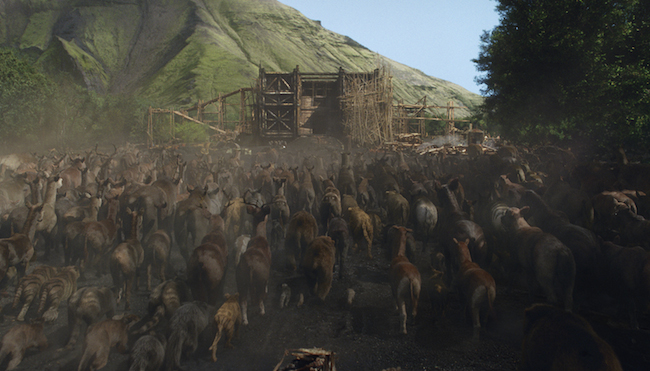 I loved the first 2 hours of Darren Aronofsky's?Noah. I have no problem with the creative liberties Mr. Aronofsky takes with the source material--in fact I loved his creativity. Below, I'll tell you what I appreciated. But first....Here's My Problem With?Noah?(no spoilers here):In a masterful way, the film's message couldn't be more?clear, true, or terrifying: humans are a violent, selfish, sinful race, and there is no hope for us. We cannot save ourselves.And then the final 18 minutes makes this point: "After the Flood, the good news is that humanity--led by Noah--now gets to save itself."See the problem?
I loved the first 2 hours of Darren Aronofsky's?Noah. I have no problem with the creative liberties Mr. Aronofsky takes with the source material--in fact I loved his creativity. Below, I'll tell you what I appreciated. But first....Here's My Problem With?Noah?(no spoilers here):In a masterful way, the film's message couldn't be more?clear, true, or terrifying: humans are a violent, selfish, sinful race, and there is no hope for us. We cannot save ourselves.And then the final 18 minutes makes this point: "After the Flood, the good news is that humanity--led by Noah--now gets to save itself."See the problem?
- Minutes 0-120: humanity is a mess and cannot save itself.
- Minutes 121-138: humanity will now save itself.
Even artistically, the ending doesn't fit with the rest of the movie.In a very sad way, Darren Aronofsky's conclusion undermines what he has been trying to tell us and proves how deeply our delusion goes. "We are a mess and we will never be able to save ourselves....Unless we try really hard and save ourselves." This is the extent of our wisdom.The Great War began 100 years ago this summer. The best and the brightest of European culture and society were convinced that such a war was impossible, because humankind was now enlightened and rational. And then came the Somme.The last 100 years ought to have caused Mr. Aronofsky to be more cautious in his movie's conclusion, but the sad story of humanity is that we never learn.As I mentioned, I have no problem whatsoever with the major creative liberties Mr. Aronofsky took with the Genesis material. But, I do have a major theological problem with Mr. Aronofsky's ultimate conclusion. The Genesis account couldn't be clearer: humanity is just as messed up after the Flood as before.If the last 18 minutes were different (and it wouldn't have required much to change the final message),?Aronofky's?Noah would have been a great movie. As it is, I think it's one more example of humanity's problem. Here's What I Loved About the Movie (Spoiler Warning):
- Noah's retelling of Genesis 1 to his family. The visuals that go along with his retelling are beautiful, interpreting the deep theology and poetry of the Creation account in ways I've never seen before.
- "The Watchers." The Watchers are fallen angels, and though I was initially skeptical when they appeared on the screen, I quickly appreciated their part in the story. The Watchers are fallen angels not because they rebelled against God by wanting to take his place, but because they rebelled against God by wanting to help humanity too much. There is a lot of wisdom in that understanding of sin. Their curse is to become part of the earth, and so they appear as rock giants.
- Noah's self-understanding. Noah sees himself as totally flawed and unrighteous and believes his only role is to steward creation, and then die.
- Noah's family dynamic. I think the tension that Noah's devotion--obsession?--causes in his family rang true.
- The Flood itself. Terrifying and utterly believable.
- All the small, human details. The scene where Noah's family is in the Ark and hears the screams of those bereft outside? Wow.
- Actually, I loved pretty much everything about the first 120 minutes of the movie....
UPDATE:?Over at?First Things, Wesley Hill has the same problem with?Noah that I do, but says it better.










